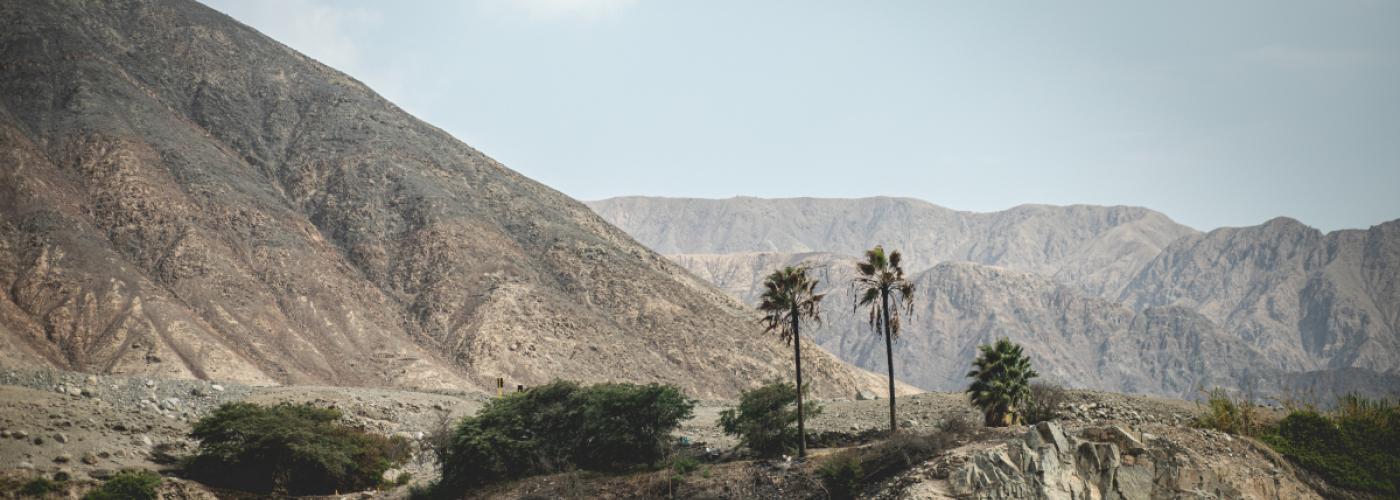Compounding Crises: The Challenges of Climate Change
Image

We live in an age of compound disasters where one emergency is layered on top of the next. This gives way to terrible humanitarian consequences that stop development in its tracks. Forced displacement is at record levels with more than 100 million people displaced around the globe for the first time.
The Corus International family of organizations actively responds to humanitarian crises that are layered onto and exacerbated by the existing climate crisis. It was not too long ago that IMA World Health was integrating its COVID-19 pandemic response into Lutheran World Relief’s humanitarian efforts following hurricanes Eta and Iota in Central America and the Beirut port explosion.
Development gains continue to be disrupted as rural economies and health outcomes across the world are threatened by the changing climate, elevating risks for already vulnerable populations, especially women, children, indigenous communities, and others. As evidenced by the negotiations in the recent COP26 summit, the losses already suffered by those who contributed least to the problem of greenhouse gas-related climate change are enormous. Advocates are readying their efforts to hold governments and other stakeholders to account for more action and stronger commitments.
The interconnectedness of climate challenges
As part of the international NGO community, it is our responsibility to continue to address both mitigation - to lessen our contribution to and help reduce emissions - as well as adaptation – to help affected communities adjust livelihoods and ecosystems. Corus organizations across sectors are working with local partners on projects that can sustain benefits over time and be resilient in the face of ongoing shocks from climate change. This could mean reducing water usage and harm by changing the way coffee is processed and creating a sustainable biofertilizer business, as Ground Up Investing does in Colombia. This could also mean strengthening community-led disaster risk reduction and preparedness. Communities vulnerable to increased flooding, for instance, have worked to improve early warning but also flood-resistant agricultural approaches to reduce harm through Lutheran World Relief projects in Nepal and El Salvador.
The connection between human, animal, planetary and ecological health is also a critical part of the way we are responding to climate change as we consider global health security and the threat of further zoonotic disease crossing over into humans. For example, the Corus family employs the multisectoral One Health approach to understand the interconnections between the health of humans, animals and the planet as well as respond to outbreaks. In Mali, for example, IMA World Health uses an innovative water, sanitation and hygiene (WASH) model to tackle the impacts of animal waste on poor sanitation. IMA World Health also addresses WASH challenges in Tanzania that are critical to ensuring health and preventing disease. While in South Sudan, IMA World Health continues to address neglected tropical diseases (NTDs) by strengthening local capacity for health facility management and better integration of detection and treatment into the primary health care system.
The path forward is locally led
The dark side of globalization –unsustainable and exploitative supply chains, for instance- threatens livelihoods and entire populations with unrelenting pressure on the most biodiverse areas of the planet. How we invest and consume will continue to influence whether we meet the climate challenge and whether threatened communities and ecosystems can adapt and survive. The good news is that responsible sustainable development practice can forge the path forward, grounded by principles for locally led adaptation. Founded with a mission to integrate and work in partnership with local actors, the Corus family has an opportunity to address climate change by deepening its commitments to holistic approaches that accompany communities and partners across the globe. Locally led development must be prioritized as we continue to face compounding crises and respond to urgent climate events.
This blog was written by Paul Miller, Corus International’s senior director for public policy and advocacy.


